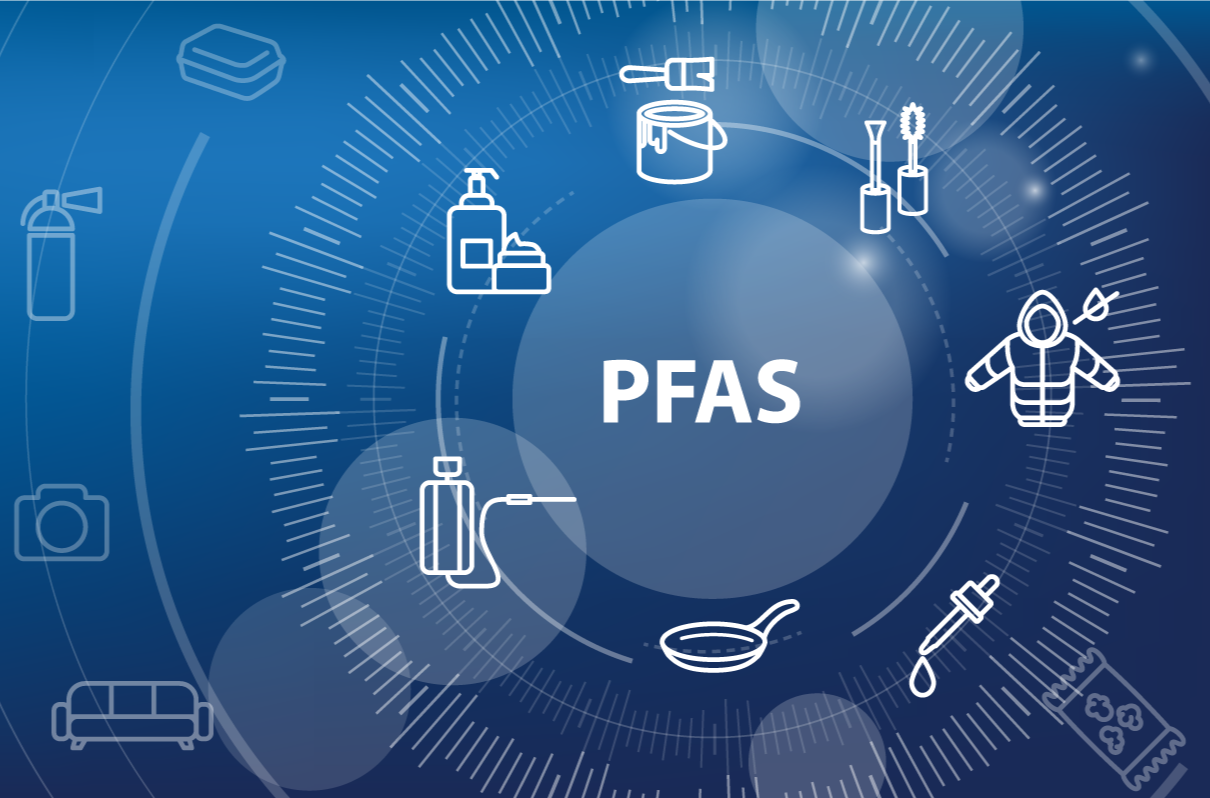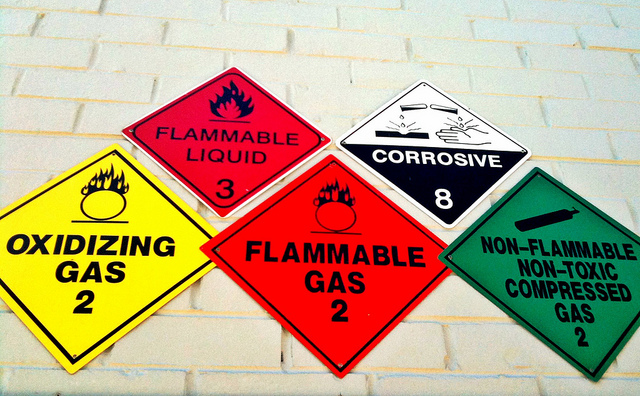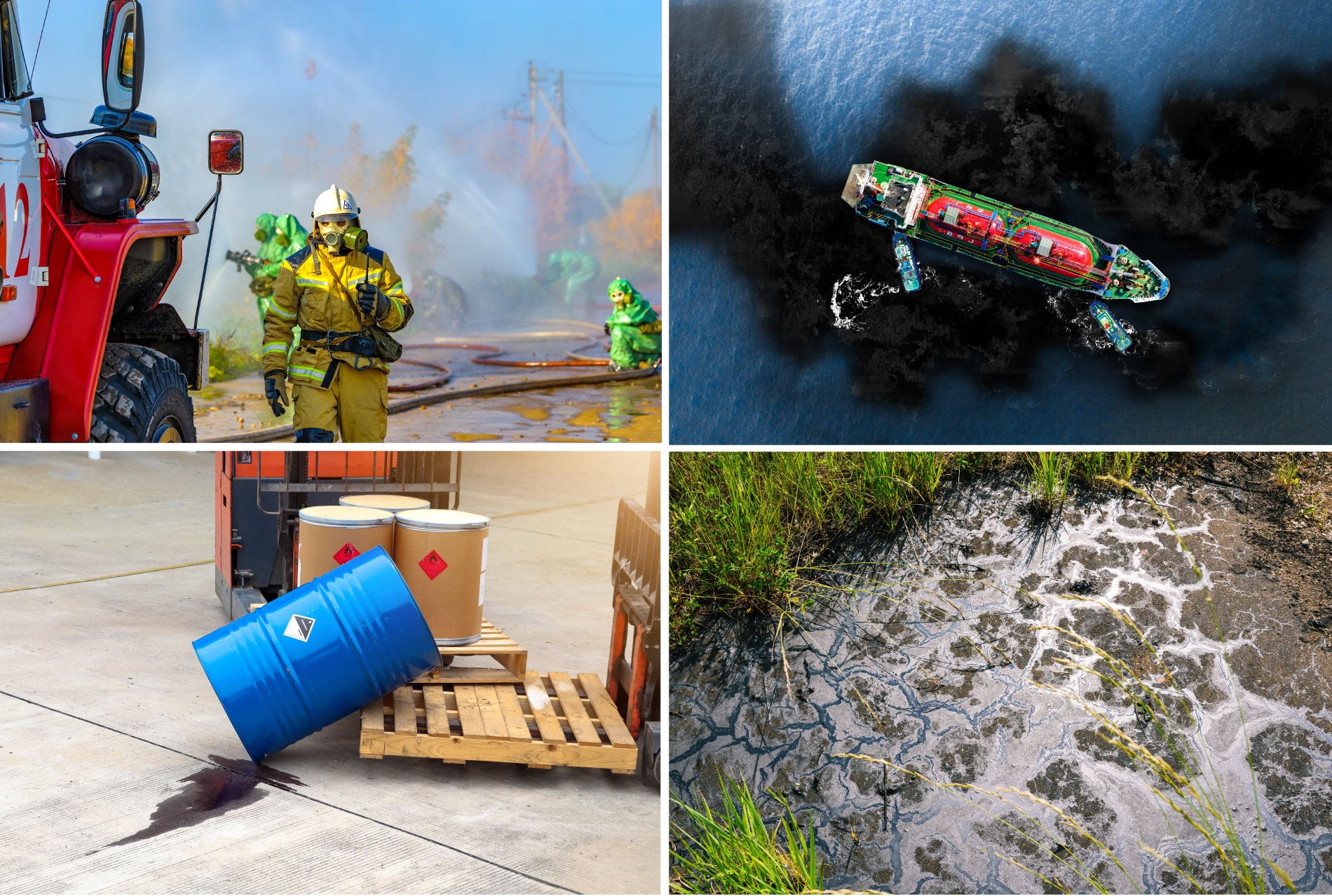The Toxic Substances Control Act (TSCA) includes procedures for the Environmental Protection Agency (EPA) to evaluate risks presented by existing chemicals using the latest scientific information – incorporating information developed after a chemical entered use in the US. Based on these reviews, EPA updates its regulatory requirements, ranging from labeling-only through use restrictions up to and including bans from further distribution and use. (I summarized these review requirements HERE). On December 18, 2024, EPA published restrictions in the Federal Register, for carbon tetrachloride (CTC) and perchloroethylene (PCE), based on its hazard reviews for those chemicals. The rest of this note discusses these new restrictions.
Audit, Compliance and Risk Blog
EPA further limits uses of carbon tetrachloride and perchloroethylene
Posted by Jon Elliott on Fri, Jan 10, 2025
Tags: Environmental risks, Environmental, EPA, tsca, Environmental Projects, chemical safety, Environment, Environmental Policy, Chemical Safety Board, Hazardous Chemicals, Environmental Compliance, EPA Regulations, EPA Standards
EPA designates two perfluoro “forever chemicals” as Superfund hazardous substances
Posted by Jon Elliott on Mon, Jul 01, 2024
On May 8, 2024, the Environmental Protection Agency (EPA) published rule revisions adding two perfluoro chemicals -- Perfluorooctanoic Acid (PFOA) and Perfluorooctanesulfonic Acid (PFOS) – as hazardous substances under the federal Superfund law (Comprehensive Environmental Response, Compensation, and Liability Act (CERCLA)). This listing is the latest regulatory action by EPA tightening controls on per- and poly-fluoroalkyl substances (PFAs); the initiatives are covered under the agency’s “PFAs Strategic Roadmap: EPA’s Commitments to Action 2021—2024,” promulgated in October 2021. The remainder of this note describes the latest action, which finalizes a proposal issued in August 2021 (which I wrote about HERE).
Read MoreTags: Environmental risks, Environmental, EPA, chemical safety, CERCLA, Environment, PFAS, PFOS
On March 1, 2024, the Environmental Protection Agency (EPA) revised Accidental Release Prevention (ARP) program rules under the Clean Air Act (CAA). ARP was authorized by the 1990 Clean Air Act (CAA) Amendments, and is often known by its core requirement that targeted facilities prepare Risk Management Programs (RMPs) to prevent and respond to potential catastrophic releases of chemicals. The adoption finalizes an agency proposal from 2022 (it also recounts a long series of proposal dating back to 2014; I wrote about it HERE), in which the Biden-era EPA proposed to many of the narrowing amendments to RMP/ARP enacted in 2019 during the Trump Administration (I wrote about the 2019 changes HERE).
The rest of this note summarizes the new revisions, noting their differences from current rules.
Read MoreTags: Health & Safety, EPA, CAA, chemical safety, Air Toxics, Clean Air Act, Toxics Release
OSHA issues new Process Safety Management Standard enforcement guidance
Posted by Jon Elliott on Fri, Feb 09, 2024
The Occupational Safety and Health Administration’s (OSHA’s) Standard for Process Safety Management of Highly Hazardous Chemicals (usually referred to as “PSM”) requires extensive risk assessments and reduction efforts by facilities where a significant incident involving these chemicals might have catastrophic consequences. OSHA adopted PSM in 1992, and has made only minor technical revisions in the ensuing three decades. OSHA has also issued enforcement guidance to its inspectors, which it had not revised since 2012. However, in December 2023 OSHA issued an extensive new PSM enforcement policy, most of which is formatted in a total of 192 Questions and Responses designed to guide enforcement – and compliance that can obviate enforcement. The remainder of this note provides a very brief summary of the 120 page Enforcement Policy document.
Read MoreTags: Health & Safety, OSHA, Safety and Health at Work, workplace safety, chemical safety, PSM
Several national laws empower the US Environmental Protection Agency (EPA) to set standards for the cleanup of contamination that resulted from accidental or deliberate releases of chemicals and other materials onto land or into water. EPA’s actions include direct requirements for cleanup by responsible parties, and also inform other parties’ evaluations of if and how to prepare contaminated areas for reuse – often referred to as “brownfields” since they’re assumed to be dirtier than never-used “greenfields.” The remainder of this note discusses EPA’s 73 page “Climate Smart Brownfields Manual,” issued by the agency in 2021
Read MoreTags: Health & Safety, EPA, chemical safety, Hazardous Waste, Environment
EPA expands Toxics Release Inventory chemical list, and proposes lower reporting thresholds for PFAS chemicals
Posted by Jon Elliott on Mon, Jan 09, 2023
The US Environmental Protection Agency (EPA) has taken two actions to expand chemical release reporting under its Toxic Release Inventory (TRI) program. EPA administers TRI as one of the distinct programs created by the Emergency Planning and Community Right-To-Know Act of 1986 (EPCRA, also referred to as SARA Title III). EPA has finalized its previously-proposed addition of 12 chemicals, and separately has proposed to tighten existing requirements for two more. (I’ve discussed TRI several times, including HERE. The rest of this note discusses these changes.
Tags: EPA, chemical safety, Toxic, Toxics Release
EPA proposes to expand regulation of two perfluoro “forever chemicals”
Posted by Jon Elliott on Tue, Oct 11, 2022
The Environmental Protection Agency (EPA) is issuing a proposal to list two perfluoro chemicals -- Perfluorooctanoic Acid (PFOA) and Perfluorooctanesulfonic Acid (PFOS) as hazardous substances under the federal Superfund law (Comprehensive Environmental Response, Compensation, and Liability Act (CERCLA)). This proposal is the latest in a string of regulatory actions by EPA to tighten controls on per- and poly-fluoroalkyl substances (PFAs); the initiatives are covered under the agency’s “PFAS Strategic Roadmap: EPA’s Commitments to Action 2021—2024,” promulgated in October 2021. The remaninder of this note describes the latest action, and summarizes the Strategic Roadmap.
Read MoreTags: Health & Safety, OSHA, Safety and Health at Work, chemical safety, PFAS
Chemical Safety Board issues compliance guidance chemical incident reporting rule
Posted by Jon Elliott on Tue, Sep 20, 2022
The federal Chemical Safety and Hazard Investigation Board – which usually refers to itself as the Chemical Safety Board or CSB – conducts independent investigations of major chemical accidents, issues accident-specific findings, and offers specific or general recommendations for improved chemical handling and regulation. In August 2022, CSB has issued compliance guidance addressing its “Chemical Incident Reporting Rule” (actually 6 rules, in 40 CFR part 1604) (I wrote about the Rule when it was adopted in February 2020, HERE). The remainder of this note summarizes CSB’s latest guidance.
Read MoreTags: Health & Safety, OSHA, Safety and Health at Work, chemical safety
EPA proposes Re-Re-Revisions to Accidental Release Prevention Rules
Posted by Jon Elliott on Mon, Sep 12, 2022
No, the title is not a stutter; I’ve written it that way to emphasize that the new Environmental Protection Agency (EPA) proposal to revise its Accidental Release Prevention (ARP) program rules under the Clean Air Act (CAA) represents only the latest step in nearly-decade-long changes to these requirements across the last three Presidential administrations. ARP was enacted after the 1990 Clean Air Act (CAA) Amendments, and its often known by its core requirement that targeted facilities prepare Risk Management Programs (RMPs) to prevent and respond to potential catastrophic releases of chemicals.
Read MoreTags: EPA, chemical safety, Environment, Toxics Release
Chemical Safety Board issues review of combustible dust hazards and management
Posted by Jon Elliott on Tue, Nov 10, 2020
The federal Chemical Safety and Hazard Investigation Board – which usually refers to itself as the Chemical Safety Board or CSB -- has issued guidance on the hazards of explosive and combustible dust. The report is intended to identify the key barriers to improvement in the control and mitigation of combustible dust hazards. The report was developed by a contractor to CSB, after a fatal 2017 dust explosion at the Didion Milling facility in Cambria, Wisconsin. In October 2018, CSB issued a “Call to Action” to gather comments on the management, control and understanding of combustible dust (which I wrote about HERE). The objective of this project was to make sense of comments submitted in response to the Call to Action. CSB ultimately received 57 responses, which its contractor reviewed and supplemented with additional research.
Read More
Tags: Health & Safety, OSHA, CSB, chemical safety, NFPA










